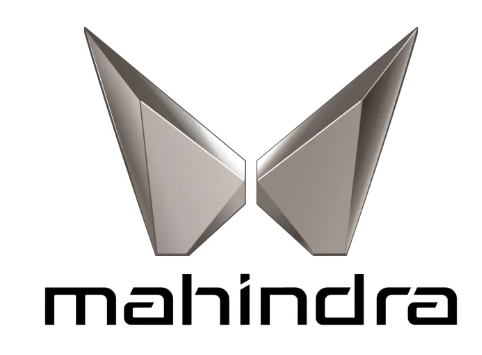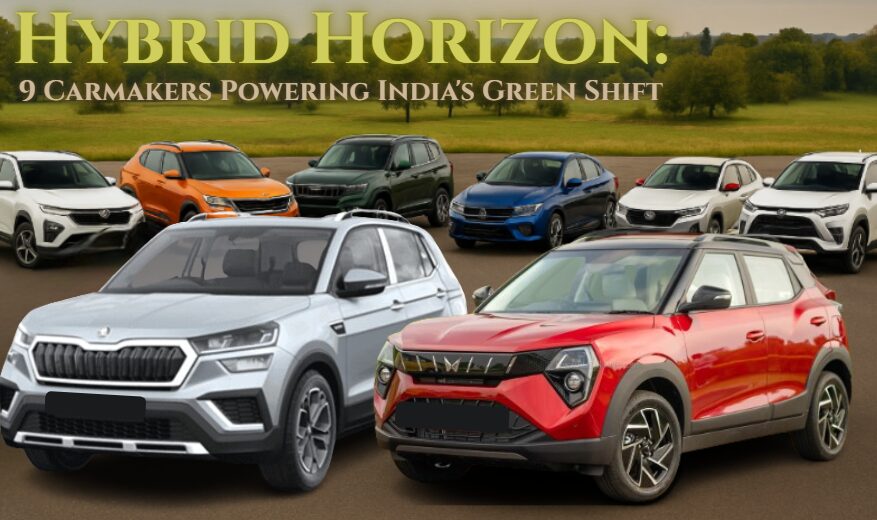4-Point Overview
- Hybrid cars are witnessing a boom in India amid rising fuel prices and limited EV charging infra.
- 9 top automakers—Hyundai, Kia, Mahindra, Tata, Skoda, Volkswagen, Renault, Nissan & Honda—are planning new hybrid models.
- These hybrids are expected to launch between 2026 and 2028, ranging from SUVs to sedans and MPVs.
- With increased localization and better market understanding, hybrids might just beat EVs to the mainstream.
Intro: When Reality Meets the Road
Let’s be honest—while electric cars grab headlines, they’re still not everyone’s cup of tea. High price tags, limited range, and patchy charging infrastructure continue to hold buyers back. But guess what? Hybrid cars are stepping up as the smart, no-compromise solution.
And the best part? Nine of India’s biggest carmakers are gearing up to unleash a wave of hybrid models that blend fuel efficiency, electric driving feel, and zero charging anxiety. It’s no longer just about futuristic dreams—this is real, relatable progress. Let’s dive into what each brand has cooking in their hybrid kitchens.
1. Hyundai: The Thoughtful Pioneer
Hyundai has always been strategic, and its hybrid plans reflect that. By 2027, the new-gen Creta will offer a smart hybrid variant that pairs their tried-and-tested engine with eco-friendly tech. Before that, in 2026, look out for the Bayon crossover hybrid—an affordable step into this future. And if you crave more space, Hyundai also has a seven-seater SUV, likely based on the long-wheelbase Tucson, ready to join the hybrid race soon after. Hyundai’s approach blends reliability, practicality, and forward-thinking without rushing headlong.

2. Kia: Youthful Tech with a Green Heart
Kia is following closely behind. In 2026, expect a hybrid Seltos that retains Kia’s stylish flair. They haven’t stopped there—2027–28 will bring the MQ4i, a larger hybrid SUV inspired by the Sorento, aimed at families who want space without compromise. Kia’s hybrids are set to be tech-rich, vibrant, and tuned for younger buyers who care about both sustainability and statement.

3. Mahindra: The Maverick of Innovation
What if your hybrid could also keep you adventurous? That’s exactly where Mahindra is heading. The XUV 3XO hybrid, expected by 2026, promises rugged looks and urban-smart features. They’re also working on range-extender hybrids—think hybrid for city drives, efficient long-distance cruising, with no charger needed. It’s a fresh take on eco-mobility, built tough, and built for Indian conditions.

4. Tata: India-Built with Global Ambitions
Tata’s hybrid plans may be low-key now, but signs are strong. With platforms like Harrier.ev and Punch already demonstrating EV prowess, a hybrid chapter is surely next. Expect future Tata hybrids to hit the ₹15–30 lakh sweet spot—steely, well-built, and deeply in tune with Indian needs and rural roads. Tata’s models won’t shout; they’ll earn trust and volume.

5. Skoda: German Engineering, India-Sized
Skoda’s thoughtful, no-nonsense ethos extends into its hybrid plans. Around 2028, Skoda will bring hybrid midsize sedans and SUVs built on its IMP platform—an Indian-edition of its global CMP chassis. The offering will be pragmatic yet premium: solid German engineering in familiar shapes like the Slavia or Kushaq, elevated with hybrid smarts. Think dependable, not showy.

6. Volkswagen: The Global Standard, Local Touch
VW will partner with Skoda to launch hybrids on the same IMP platform. Expect hybrids derived from Virtus, Taigun, and their SUV kin. Quality, reliability, and mainstream features—VW hybrids will be low-fuss vehicles offering global badge value and middle-class sensibility. A quiet, measured entry with a promise of long-term dependability.

7. Renault: Rugged Reinvented
Renault’s making a bold move—bringing back the iconic Duster as a hybrid by 2026, perhaps even with a 7-seater twist. That means rugged hybrid SUVs redefined for modern families who crave adventure. Expect strengthened build, fresh interiors, efficient hybrid engines, and unmistakable value—Renault’s green Duster is a challenge to every compact SUV.

8. Nissan: The Stylish Twin
Expect Nissan’s hybrid lineup between 2026–27, carving out its own identity with rebadged Renault Duster siblings. It’s the same hybrid tech underneath, but with Nissan’s stylistic flair on the outside—sleek front fascia, distinct interiors, and brand-new badges. Buyers get choice—not only in engine, but also in their brand identity, without paying more.

9. Honda: Learning Fast, Pivoting Smart
Honda’s hybrid journey in India began with the City e:HEV — refined, tech-loaded, and fuel-efficient. But at ₹20.85 lakh (ex-showroom), it priced itself out of mass reach. Now, Honda is shifting gears. With the all-new PF2 modular platform, the brand is localizing production to cut costs and stay competitive. Expect a fresh wave of hybrid SUVs, crossovers, and a next-gen City, all aimed at the growing ₹15–30 lakh segment. This time, Honda’s not just flexing tech — it’s going for volumes.

The Hybrid Timeline & How It Unfolds
| Brand | Key Hybrid Models | When It’s Arriving |
|---|---|---|
| Hyundai | Creta Hybrid, Bayon Hybrid, 7-seater SUV | 2026–2027 |
| Kia | Seltos Hybrid, MQ4i (7-seater) | 2026–2027 |
| Mahindra | XUV 3XO Hybrid, Range-Extender | 2026 onwards |
| Tata | Harrier-based Hybrid, Future SUVs | 2026–2028 |
| Skoda | Hybrid Sedan & IMP SUV | By 2028 |
| VW | Virtus/Taigun Hybrid variants | By 2028 |
| Renault | New Duster Hybrid (5 & 7 seater) | From 2026 |
| Nissan | Rebadged Duster Hybrid | 2026–2027 |
| Honda | Hybrid SUVS, Crossovers, Next-Gen City | 2026 onwards |
Why Now? The Hybrid Opportunity
- Fuel shock — Petrol and diesel prices keep surging, making hybrids a more affordable choice.
- Charging gaps — EV infrastructure is still patchy—especially outside metro hubs. Hybrids need none.
- Zero range anxiety — Consumers get electric-like driving in traffic, and petrol backup for long trips.
- CAFE compliance — Tougher emission norms demand cleaner engines—hybrids offer a smarter path.
- Localization possibilities — Hybrid R&D is getting indigenized, so costs can stay lower.
Conclusion: Hybrids Are India’s Smart Bridge
India’s hybrid revolution isn’t a maybe—it’s a movement. As EVs inch forward, hybrids are stepping up now with the perfect blend of tech, affordability, and reliability. With nine powerhouse brands sharpening their strategies, your next car might just be the smartest version of what you already love—only cleaner, quieter, and smarter. This isn’t a halfway point. It’s a whole new road ahead.

